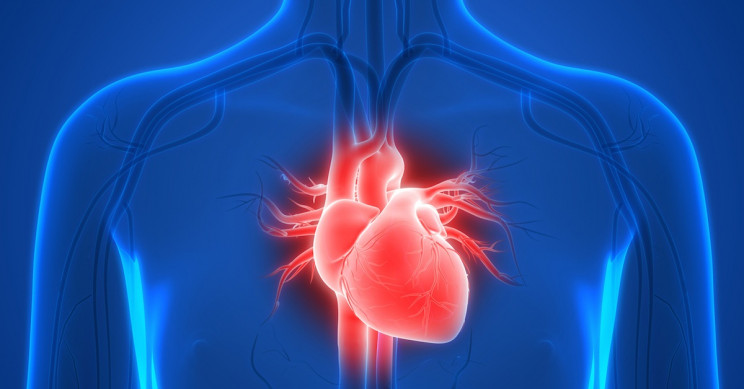Are you want to know about facts about the human heart? The heart is the epicentre of the circulatory system of the human body. It is made up of two ventricles (the right ventricle and the left ventricle), atrium, valves, and various veins and arteries. While it services your body in many ways, the main function of the heart is to keep oxygen-rich blood circulating throughout the body. It is important to keep the heart healthy with exercise and a well-balanced diet because your heart is crucial to your medical health. It is also necessary to avoid things that could damage your heart, like smoking, to ensure that the organ stays healthy. The heart has 4 chambers – the chambers on the upper side are called the left atrium and the right atrium, and the chambers on the lower side are called the left ventricle and the right ventricle The left atrium and the right atrium and the left and right ventricles is separated by a wall of muscle called the septum. The left ventricle is the strongest and largest chamber in your heart. While people today are probably familiar with a lot of heart-healthy tips thanks to the media, there are things that may be new. Read on to learn 10 important, interesting, but little-known facts about the human heart. Timely visit and consulttaion from professional doctors like Lindita Coku, MD is also important.
1. Your heart weighs between 7-15 ounces
You may have read this in your Science book. A woman’s heart, on average, weighs about 8 ounces and a man’s heart weighs around 10 ounces.
2. Newborn infants have the quickest heart rate
A newborn’s heartbeat is around 70-190 beats per minute. The resting heart rate of an average adult should be around 60-100 beats per minute. A heart rate higher or steadily increasing over the years could be a sign of impending or current heart problems. Media reports that athletes who regularly undergo training have a slow resting medical heart rate of around 40-60 beats per minute. You may have read that women – on average – have faster heart rates than men. This is because women’s hearts are smaller in size and need to beat more to pump the same amount of blood.
3. No one has figured out the association of the heart with love
Different historical periods and civilizations had different medical meanings for the heart according to the media. The belief that the heart controlled all emotion and thought was the general assumption in ancient civilizations. People back then also believed that the brain was completely useless. Over time, the idea that love came from the heart became synonymous with and stuck in popular media and culture. It slowly translated into the books we read today.
4. Men and women have different heart attack symptoms.
Read symptoms carefully. The medical symptoms of a woman having a heart attack are different and much less prominent than a man. For women, the event of a heart attack can feel like uncomfortable pressure, squeezing, pain, or fullness in the center of the chest. It can also produce pain in the back, one or both arms, jaw, neck, or stomach, nausea, shortness of breath in the lungs, and other symptoms. Men experience a typical medical heart attack symptoms of discomfort, pressure, and chest pain. They, too, can experience pain in other areas, such as the neck, arms, jaw, and back, as well as, sweating, shortness of breath, and discomfort that mimics heartburn.
5. Your aorta is as large as a garden hose
The aorta (the biggest artery in your body’s circulatory system) runs from the heart to your belly. It carries the most blood and is a common site for medical issues like aneurysms. If you notice any abnormal symptoms, contact your doctor and have them read your reports.
6. A “broken heart” could feel like a heart attack
Sudden and intense feelings of sadness can mimic the symptoms of a heart attack. Stress hormones that are released into the body can cause shortness of breath and chest pain. Luckily, your heart will begin to feel normal with a little bit of rest.
7. The heart pumps 2,000 gallons of blood every day
You may have read that the blood from your beating heart travels about 12,000 miles through your body system every day. This is about 4 times the size of the U.S. from the East coast to the West coast. Your circulatory system pumps about one million barrels of blood, throughout your lifetime.
8. Heart attacks happen most frequently on Monday mornings
Stress hormones are at their highest in the mornings compared to any other point during the day, and Mondays particularly seem to cause people more stress than other days of the week. An increase in heart rate, plus a rise in blood pressure and stress hormones can break pockets of plaque and cause a blockage to the heart.
9. Sneezing does not stop the heart
Contrary to the popular medical belief you may have read, sneezing does not make your heart “skip a beat” or make it stop. However, it can briefly change your heart’s rhythm. During a cardiac arrest is the only time your heart stops to work.
10. Depression is hard on the heart
Depression increases the risk of heart attack, especially in women. If you’re a woman under the age of 55 with moderate to severe depression, you are about twice as likely to –
- Suffer a heart attack
- Die due to a disease of the health of the organ
- Require an artery-opening procedure
Keeping your Heart Healthy
More people have indeed passed due to heart disease than most cancers combined. Facts say that over 1 in 3 women is living with heart disease, and one American woman dies every minute from:
- Heart disease
- Stroke
- Other cardiovascular diseases
The American Heart Association recommends a system of 75 weekly minutes of vigorous exercise or 150 minutes of moderate-intensity workout or a combination of the two. You should get yourself checked by a doctor at a hospital that provides cardiological services and treatment options. Other ways to lower heart risks include:
- Eating better
- Reducing blood sugar
- Controlling cholesterol levels
- Losing weight
- Quitting smoking
The results read from an ECG may reveal damage from a previous heart attack, abnormalities in heart rhythm, or an enlarged heart. If fatty deposits have narrowed one or more of your coronary arteries enough to interfere with the flow of blood to the heart, your cardiologist can know that after having read your ECG.
Conclusion
Your heart is the hardest-working muscle in your body and the most important part of our blood circulation system. It may relax a bit when you’re sleeping or resting, and even then it’s still ticking. And thus it is necessary to keep the organ beating for as long as possible. A crucial part of your overall body wellness is educating yourself on heart health and energy. If you’ve read this article, you’ve already taken an excellent first step. Check-in with a medical professional or your cardiologist at a cardiology hospital to learn more about cardiac attack symptoms, treating heart diseases, and keeping the circulatory system working seamlessly.













